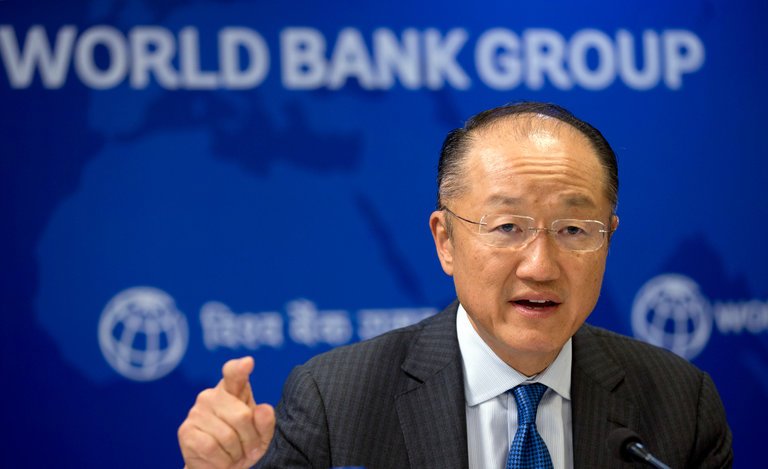Jim Yong Kim resigns as World Bank president

Photo: Getty Images
Jim Yong Kim, president of the World Bank, announced Monday he would step down next month, more than three years before his current term was due to expire.
“It has been a great honor to serve as president of this remarkable institution, full of passionate individuals dedicated to the mission of ending extreme poverty in our lifetime,” Kim, 59, said in a statement.
Kim, who became the bank’s president in 2012, is to join an as-yet unnamed firm focusing on investments in developing countries, the bank said in a statement, and will return to the board of Partners-in-Health, which he co-founded.
World Bank CEO Kristalina Georgieva will serve as interim president upon Kim’s February 1 departure, the bank said in a statement.
Under Kim’s leadership, the bank set the goal of eliminating extreme poverty by 2030 and ramped up financing.
Last year, it also won approval for a sharp $13 billion capital increase after acceding to requests from the Trump administration to curb loans to high-income countries like China.
Naming Kim's replacement could mark a sharp break with the past as the Trump administration has repeatedly broken with multilateral institutions and conventions of which Trump himself has been highly critical.
Under an unwritten rule, the bank's presidency has always been chosen by its largest shareholder, the United States, an arrangement that also allowed European powers to name the head of the International Monetary Fund.
Nevertheless, when he was nominated for a first term in 2012, Kim was the first US nominee to face a challenger when Nigeria's Ngozi Okonjo-Iweala entered the contest for the bank's presidency.
Perhaps warding off challengers and avoiding a repeat of 2012, the administration of former president Barack Obama in 2016 swiftly endorsed Kim for a second five-year term, which began in 2017.
However, the bank's staff association in 2016 delivered a stinging broadside, citing high levels of disaffection among its 15,000 employees, asserting that it faced a “crisis of leadership” and calling for an end to “back-room deals” over control of the institution.
World Bank staff also chafed at a widespread internal restructuring that Kim began, as well as spending and staff cuts.
Related News

19:29 / 11.02.2026
Uzbekistan launches $100 million employment initiative with World Bank support

11:17 / 24.01.2026
World Bank approves $1 billion program to create Central Asia’s first regional electricity market

11:40 / 15.12.2025
World Bank approves $250 million loan to reform student financing in Uzbekistan

17:02 / 22.11.2025




